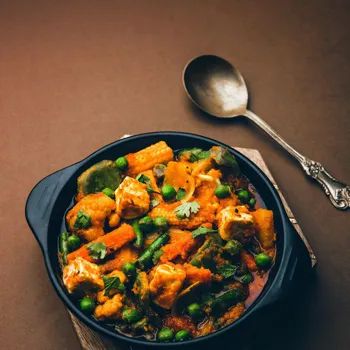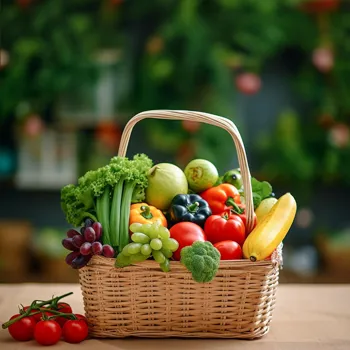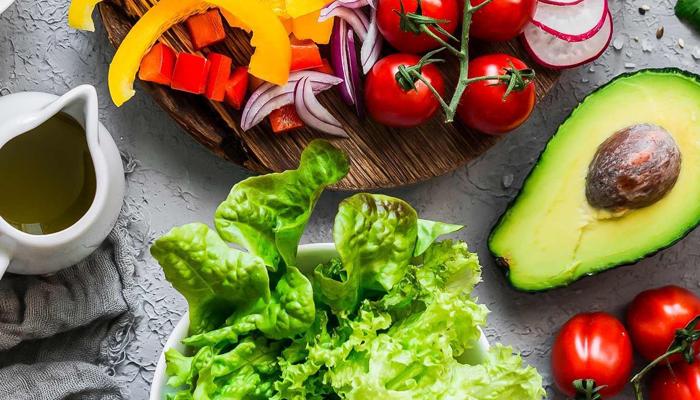Unveiling Whole30: Your Health's Reset Button! Dive into benefits, challenges, and its fit in Indian lifestyle. Explore more
A Reset Button for Your Health? Benefits and Challenges, Explained Simply
Indians
embrace Whole30 for health amidst food culture
In today's world, where chai and samosas seem to be around every corner, and the allure of a quick paratha with butter late at night is strong, many Indians are finding themselves grappling with health issues. Weight gain, sluggishness, and digestive problems are becoming increasingly common.

Amidst the noise of various diet trends, one program stands out for its simplicity and potential for significant change: the Whole30. But what exactly is Whole30, and is it the right fit for the Indian lifestyle?
Let's break it down in a way that's easy to understand, considering our unique food culture and preferences.
Whole30: 30-day reset to eliminate inflammatory foods, not for weight loss
Think of Whole30 as a 30-day nutritional reset. It's not a weight-loss diet, although weight loss is often a welcome side effect. The primary goal is to eliminate foods that are commonly known to cause inflammation, digestive issues, and energy crashes.
During the 30 days you commit to cutting out specific food groups that are commonly known inflammation triggers. After this period you gradually, introduce them back into your diet, one at a time, to see their effects on your body.
Discover optimal foods for your body, reset for health
It's like hitting a reset button for your body and figuring where to start with healthier options, by learning how different foods impact you. This can help you figure out what works best for you and what doesn't in order to have a healthier lifestyle.
Yes
Vegetables (all kinds!), fruits (in moderation, not as dessert), lean proteins (like dals and legumes), nuts and seeds (except peanuts, which are legumes), healthy fats (like those found in avocados, coconut oil, and olive oil).
This could mean delicious vegetable curries made with coconut milk, lentil soups with spinach, and fruit salads with a sprinkle of seeds.
No
Sugar (including honey, jaggery, maple syrup, and artificial sweeteners), alcohol, grains (including wheat, rice, oats, corn, and quinoa), legumes (including all types of dals, beans, peanuts, and soy), dairy (including milk, yogurt, cheese, and ghee), and processed foods.
This means no rotis, no rice, no sweets like jalebi or gulab jamun, no idli or dosa, and no packaged snacks.
30-day restrictive diet for body healing
While this might seem restrictive, remember that it's only for 30 days. The goal is to give your body a break from potentially problematic foods and allow it to heal.
Whole30 benefits: improved energy, sleep, skin, mood, less bloating, find food sensitivities
The Whole30 program boasts a range of benefits beyond just shedding a few kilos. Many people report experiencing improved energy levels, better sleep, clearer skin, reduced bloating, and a more stable mood.
It can also help you identify food sensitivities that you might not have been aware of before. Imagine waking up feeling refreshed and energized to tackle your day.
Discover your body's sensitivities through elimination diet
It’s also about learning what your body is sensitive to, by getting rid of foods and then introducing those foods one by one.
Transform relationship with food for mindful lifestyle choices
This can change your relationship with food and help you make mindfully better lifestyle choices in the long run.
Adapting Whole30 to Indian diet poses challenges
Adapting Whole30 to the Indian context can be tricky. Our cuisine is heavily reliant on grains, legumes, and dairy. Giving up rotis, rice, dals, and ghee can feel like a huge sacrifice. Social gatherings and festivals, where food plays a central role, can also pose a challenge.
Imagine attending a Diwali celebration without being able to partake in the sweets!
Be creative with Whole30: veg curries, coconut milk, prep meals
However, with a bit of creativity and planning, it's definitely possible to make it work. Explore vegetable-based curries, use coconut milk as a dairy substitute, and focus on enjoying the company of loved ones rather than fixating on what you can't eat.
Carry your own Whole30-compliant snacks to parties and politely decline dishes that don't fit the program. Most importantly, you need to prepare food in advance, to avoid the temptation of fast food or parathas when you are hungry.
Start slow with Whole30 by cutting out one food type at a time
Begin with a plan and start slow. Make sure to read the full rules of Whole30 to know exactly what to prepare for. Start by cutting out one food type at a time so that way one can avoid feeling overwhelmed with all of the sudden restrictions.
Plan, plan, plan
Meal planning is key to success. Spend some time each week planning your meals and preparing ingredients in advance. This will make it easier to stay on track, especially when you're busy.
Embrace Indian flavors
Don't think you have to give up all your favorite Indian dishes. Experiment with using Whole30-compliant ingredients to create delicious and satisfying meals. Think vegetable korma with cashew cream instead of dairy cream, or cauliflower rice biryani with plenty of vegetables.
Seek support
Join online communities or find a Whole30 buddy to help you stay motivated and accountable. Sharing your experiences with others who are going through the same thing can make a big difference.
Read labels carefully
Processed food is sneaky, and sugar can be hidden under many names. Make sure to read the labels of all packaged foods carefully to ensure they are compliant.
Don't give up, focus on positive changes and celebrate progress
Don't give up:* There will be days when you feel like giving up. Remember why you started the program and focus on the positive changes you're experiencing. Take it one day at a time, and celebrate your progress along the way.

Whole30 is not a magic bullet; consult a professional before trying
Whole30 is not a magic bullet, and it's not suitable for everyone. If you have any underlying health conditions, it's important to consult with a doctor or registered dietitian before starting the program.
However, if you're looking for a way to reset your health, identify food sensitivities, and break free from unhealthy eating habits, Whole30 might be worth a try, adapt it to the Indian culture and your personal needs.
Whole30 helps increase awareness of food intake to improve health
More than anything, Whole30 is a tool that can help people be aware of what they are putting in their bodies. There are a lot of hidden additives in today’s food. This is a great alternative to changing your lifestyle and learning more about what you consume.













